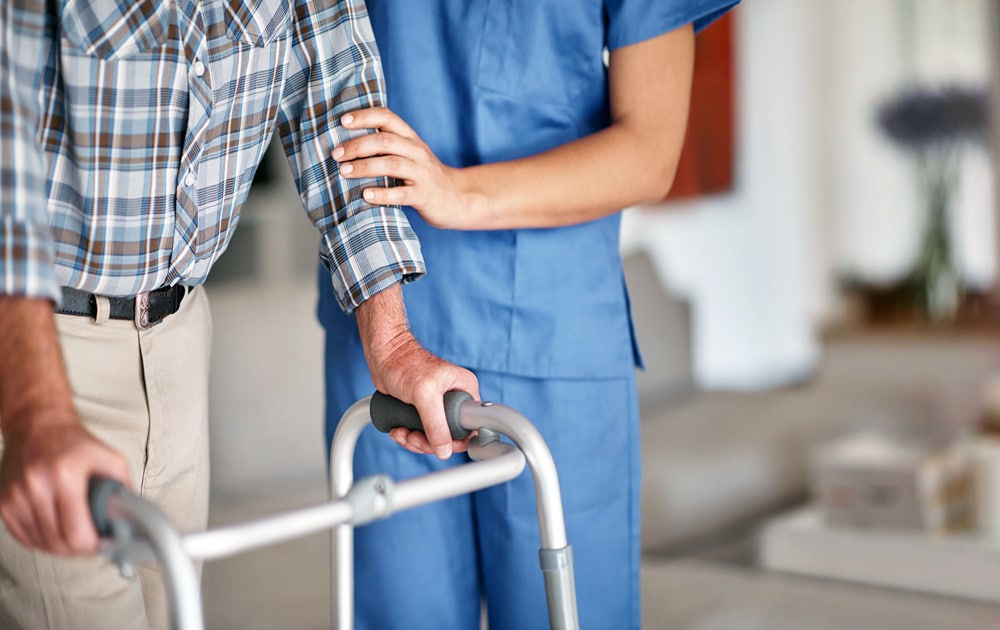
Getting the Most from Senior Care Insurance
March 15, 2023
10 Benefits of Home Healthcare After Surgery for Seniors and How to Access Them
April 14, 2023Assistance With Activities Of Daily Living: How To Support Your Senior Parent
Table of contents
- What are the activities of daily living?
- How do ADLs change with age?
- What’s the purpose of an ADL assessment?
- Getting assistance with activities of daily living
As we age, our bodies and minds undergo changes that can impact our ability to independently perform everyday tasks.
These tasks, known as activities of daily living (ADLs), are essential to our well-being and quality of life. From brushing our teeth and getting dressed to managing finances and transportation, ADLs are the building blocks of our daily routines.
Some seniors may begin to struggle with performing basic tasks, making it challenging to maintain their independence and dignity.
That’s why it’s essential to understand the different types of ADLs, how they can be affected by aging, and where to turn for the right kind of assistance with activities of daily living.

What are the activities of daily living?
Activities of daily living (ADLs) is a term first coined in 1950 by the long-term care physician Sidney Katz. He used this term to describe the fundamental skills required to care for oneself independently.
ADLs are used as a marker of a person’s functional status. A person who can’t perform ADLs is dependent on other people or mechanical devices for these necessities.
Recent research shows that up to 29.2% of older adults living alone in the United States report difficulty performing ADLs. Many also say they had trouble finding assistance.
This is important because the inability to accomplish these essential activities can lead to unsafe conditions or poor quality of life. An inability to perform ADLs can signal a need for in-home senior services or a transition to alternative living arrangements.
Basic activities of daily living
Basic ADLs are the daily activities that affect how well a person can care for themselves. These activities can’t be avoided or skipped without affecting your parent’s overall health and safety.
The six basic activities of daily living are:
- Ambulating: How well can your senior parent walk independently and move from one place to another?
- Feeding: How well can your parent feed themselves a prepared meal?
- Dressing: How well can your parent select appropriate clothes and put them on?
- Personal hygiene: How well can your parent bathe themselves and perform needed dental, nail, and hair care?
- Continence: How well can your parent control their bowel and bladder functions?
- Toileting: How well can your parent get to the toilet, use it, and clean up afterward?
The level of support and assistance with basic activities of daily living that your senior parent needs can help determine their ability to live safely at home and their eligibility for senior services or long-term care insurance benefits.
Instrumental activities of daily living
Instrumental activities of daily living (IADLs) require more complex thinking and organizing skills than basic ADLs. These skills are essential for living independently but may not be needed every day.
The six instrumental ADLS are:
- Transportation: How well can your parent drive or arrange transport to attend events or go to the store?
- Managing finances: How well can your parent manage their assets and keep track of bills?
- Shopping and meal preparation: How well can your parent acquire ingredients, prepare, and cook a meal?
- House cleaning and maintenance: How well can your parent clean and maintain their living areas?
- Managing communications: How well can your parent keep up with mail and phone calls?
- Managing medications: How well can your parent acquire needed medications and take them as directed?
Many seniors with trouble performing IADLs are still able to continue living independently. They often seek additional support from family, friends, or paid caregivers.
How do ADLs change with age?

Aging and health problems can affect your senior parent’s ability to engage in activities of daily living. How each person will be affected is unique to their health.
Some conditions that affect a senior’s ability to perform ADLs include:
- Physical health conditions
- Pain
- Hearing or vision loss
- Cognitive decline
- Side effects from medication
- Social isolation
- Hospitalization/ acute illness
Changes are often subtle over the course of many years. Seniors might not even notice initially that they can’t perform some activities as well as they used to.
What’s the purpose of an ADL assessment?
If you or your parent feel like they are beginning to have trouble performing activities of daily living, it’s vital that they be assessed by a healthcare provider. Defining where your parent is or isn’t struggling can help direct you to the right kind of assistance for them.
Depending on the results of an ADL assessment, your parent may:
- Continue living independently
- Need minor assistance from friends and family
- Need in-home caregivers to provide assistance with ADLs
- Transition to a senior assisted living home
An ADL assessment should also include a medical evaluation. Underlying medical conditions can affect your senior parent’s daily activities. Successfully managing these health conditions can potentially reverse or stop the decline.
Depending on the root cause, skilled therapies (such as physical, occupational, or speech therapy), adaptive equipment, or mobility devices may also help your parent function more independently.
In addition to getting your parent the appropriate assistance with activities of daily living, an assessment can also make their doctor aware of their functional abilities when planning care.
For example, instructing your parent to check their blood sugar at a specific time or apply an ointment after showering may be difficult if your parent is forgetful or has difficulty bathing.
Getting assistance with activities of daily living
If your senior parent is having trouble performing ADLs, Parentis Health is here to help.
For seniors who only need a little help, we offer home health, home care, and transportation services. For seniors who can no longer safely live independently, we have multiple upscale residential care homes collectively known as Verona Court.
At Verona Court, your loved one will receive care from a team of experienced nurses, fully trained caregivers, and healthcare professionals, with integrated access to our full range of healthcare services, including home health, in-home care, hospice, and transportation through Parentis Health.
We intentionally cap residency at a maximum occupancy of 6 residents per home, with a 3:1 resident-to-caregiver ratio. So there’s always someone available to give the time and attention your loved one needs, day or night.
Contact us today to talk about how we can help your senior parent get the assistance with activities of daily living they need to maintain dignity and independence as they age.

